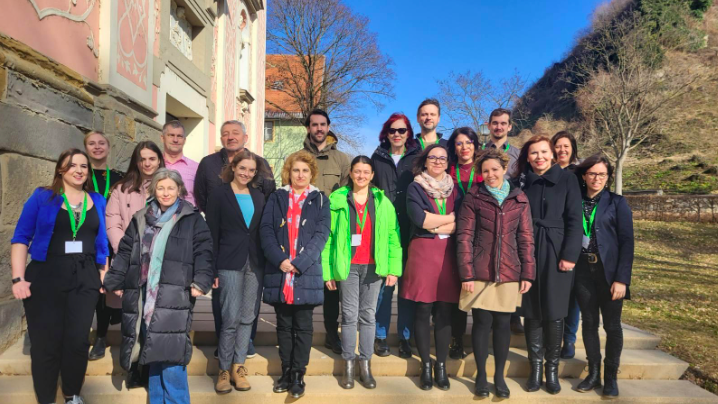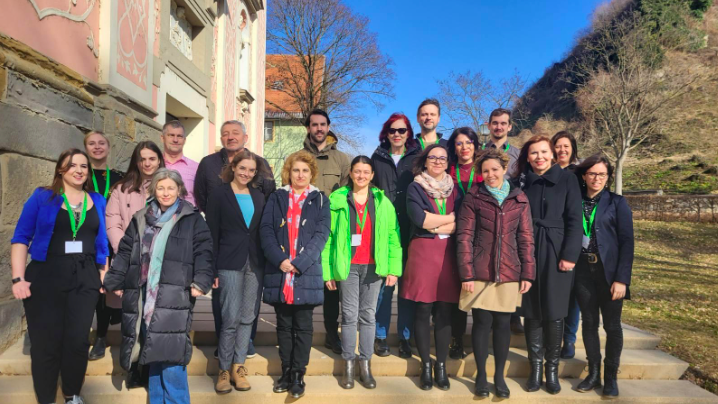
- Search term must have more than 2 characters.

These are just some of the questions SMEs ask themselves when they consider adopting renewables. The recently approved Interreg Danube SMEnergy project hopes to provide answers to these questions and more. By developing, testing, and implementing a network of regional and countrywide service centres, SMEnergy wants to make the transition to renewable energy for SMEs easier.
On 6-7 February 2024, the transnational project consortium consisting of 10 partners and 8 associated partners from across the Danube region convened in Ptuj, Slovenia for the official kick-off meeting of the SMEnergy project. For the next two-and-a-half years, the transnational pilot project aims to support energy-intensive SMEs in accelerating the transition to adopting renewable energies.

The SMEnergy project, standing for Service centres and transformation path for a bigger share of renewable energy use of SMEs, is led by the Local Energy Agency Spodnje Podravje (LEASP), based in Slovenia, together with project partners from Hungary, Austria, Czech Republic, Slovakia, Bosnia and Herzegovina, Bulgaria, and Germany. Through knowledge transfer and the development of planning tools, the Interreg Danube SMEnergy project will provide comprehensive support to local/regional SMEs when they adopt renewable energy. At the same time, the integrated, transnational approach will exploit existing SME networks to increase the visibility of best practice examples and advance strategies, efforts, and uptake of renewables throughout the Danube programme area and beyond.
Why is transnational cooperation needed to address the identified needs and challenges?
Given the ongoing energy transition and the EU’s ambitious goal to reach net-zero carbon emissions by 2050, the majority of energy-intensive SMEs in the Danube region are facing the same challenges to adapt to a greener economy and increased sustainable energy utilisation and efficiency. Foremost, industrial SMEs are among the largest energy consumers, which often represents a large cost factor and poses problems in light of energy security and fossil fuel dependence especially due to current geopolitical developments. Increasing the share of renewables and energy efficiency are therefore central issues concerning industry and SMEs across the Danube region.
The transnational project consortium brings together partners from a wide field of expertise, ranging from business support organisations to energy and environmental experts to innovation and technology centres:
Hungarian Energy Efficiency Agency – MEHI / Energiaklub (Hungary)
Business Agency Burgenland Research and Innovation Ltd. – FIB (Austria)
Development Agency of the Republic of Srpska – RARS (Republic of Srpska/Bosnia and Herzegovina)
Business Support Centre for Small and Medium Enterprises - Ruse – BSC SME Ruse (Bulgaria)
The SMEnergy project is aligned with the Interreg Danube Region Programme 2021-2027 priority, “A greener, low-carbon Danube Region”, and will directly contribute to the programme Specific Objective 2.1, “Support greening the energy and transport sectors in the Danube Region by enhancing the integration of renewable energy sources”.
Are you working for an energy-intensive SME, professional or advocacy group, energy supplier, or decision-making body and want to learn more?
Sign up to receive news about the Interreg Danube SMEnergy project, including how to get involved in the development of both national and transnational strategies & toolkits for the increased use of renewables in energy-intensive SMEs.

Petra Jalšovec Palacz
Business Development and Fundraising Manager
petra.jalsovec@dex-ic.com